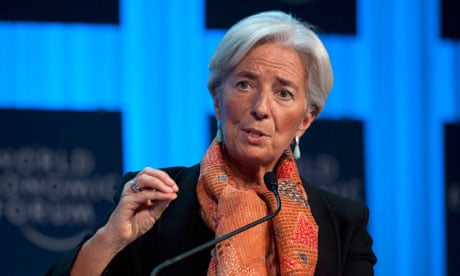Plans to commit €22bn to tackling the scourge of youth unemployment across Europe will be considered by EU leaders on Monday as international pressure mounts for action to help young people chart a way through the deepening economic crisis.
The difficulties of young people leaving school for a world that offers ever more limited job opportunities were highlighted last week when youth unemployment in Spain reached 51.4% among those aged 16 to 24.
The issue was high on the agenda at the World Economic Forum in Davos on Saturday where politicians, economists and bankers said action was essential to stimulate demand and prevent a generation becoming strangers to work.
Robert Zoellick, president of the World Bank, said youth joblessness was not just a problem for the west, but was also evident in emerging economies, in many of which the proportion of young workers was rising. "If people don't get the right start it can affect them their whole lives. It is not enough to muddle through. It is not enough to do a fiscal fix."
Christine Lagarde, managing director of the International Monetary Fund, held private talks in Davos with union leaders to discuss unemployment. She said on Saturday it was vital to kickstart growth in the eurozone. "Growth is critical for many reasons – for the jobs issue, for fiscal consolidation and to encourage value creation."
At Monday's EU summit in Brussels – likely to be dominated by attempts to safeguard the euro's future and to control spending by eurozone members – EU leaders, including David Cameron, will discuss a plan to guarantee all young people either work, training or further education within four months of leaving school.
A draft conclusion of the summit, likely to be agreed by all 27 heads of state and government, states: "The objective should be that within four months of leaving school young people receive a good quality offer of employment, continued education, an apprenticeship or a traineeship."
EU sources said €22bn of as yet unspent money in the EU's social fund could be provided. The commission would work with member states to draw up "country specific" programmes on how to address the problems and use the funds. While the plans would not be legally binding, as the EU has no power to enforce such schemes, a unanimous agreement would place countries under strong peer pressure to deliver results.
Demands for more to be done on jobs highlight the tension between the EU's demands for austerity in the eurozone and the desire of many in Europe to kickstart flagging national economies with extra spending.
As Spain's unemployment figure rose above 5 million last week, the new government of Mariano Rajoy called on Brussels to ease the country's deficit targets. Its 51.4% youth unemployment level means that for the first time in a modern European country the majority of young people are out of work. In Greece the figure is 46.6% and in Portugal it is 30.7%.
In November youth unemployment in Britain passed 1 million for the first time in 15 years, equivalent to 22% of those aged 16 to 24.
On Saturday chancellor George Osborne and Labour leader Ed Miliband joined the leaders of the World Bank and the IMF in urging action to create jobs amid warnings that youth unemployment was a timebomb under the global economy.
Peter Mandelson, business secretary in the last Labour government, said: "I've not been in a meeting or speech where the subject didn't come up. Why? People recognise that it is a massive waste of resource, a ticking timebomb and a loss of consumer demand. It is one of the most important issues this year."
Osborne, who is under pressure to announce job creating measures in his March budget, said on Saturday in Davos: "It is incredibly important. We are doing everything we can to increase the capacity of the economy and make sure young people have the skills they need. It is a question of demand and supply. You can't just look at one of them."
Miliband agreed with Osborne about the importance of tackling the issue, highlighted by the International Labour Organisation last week when it said there would be a need to create 600m jobs worldwide over the next decade.
"It is a massive issue," said Miliband, lambasting the government for its inaction. "That's why we are calling for a tax on bonuses and want to use the money to get people to work. The government has been hopeless and allowed youth unemployment to rise."






Comments (…)
Sign in or create your Guardian account to join the discussion